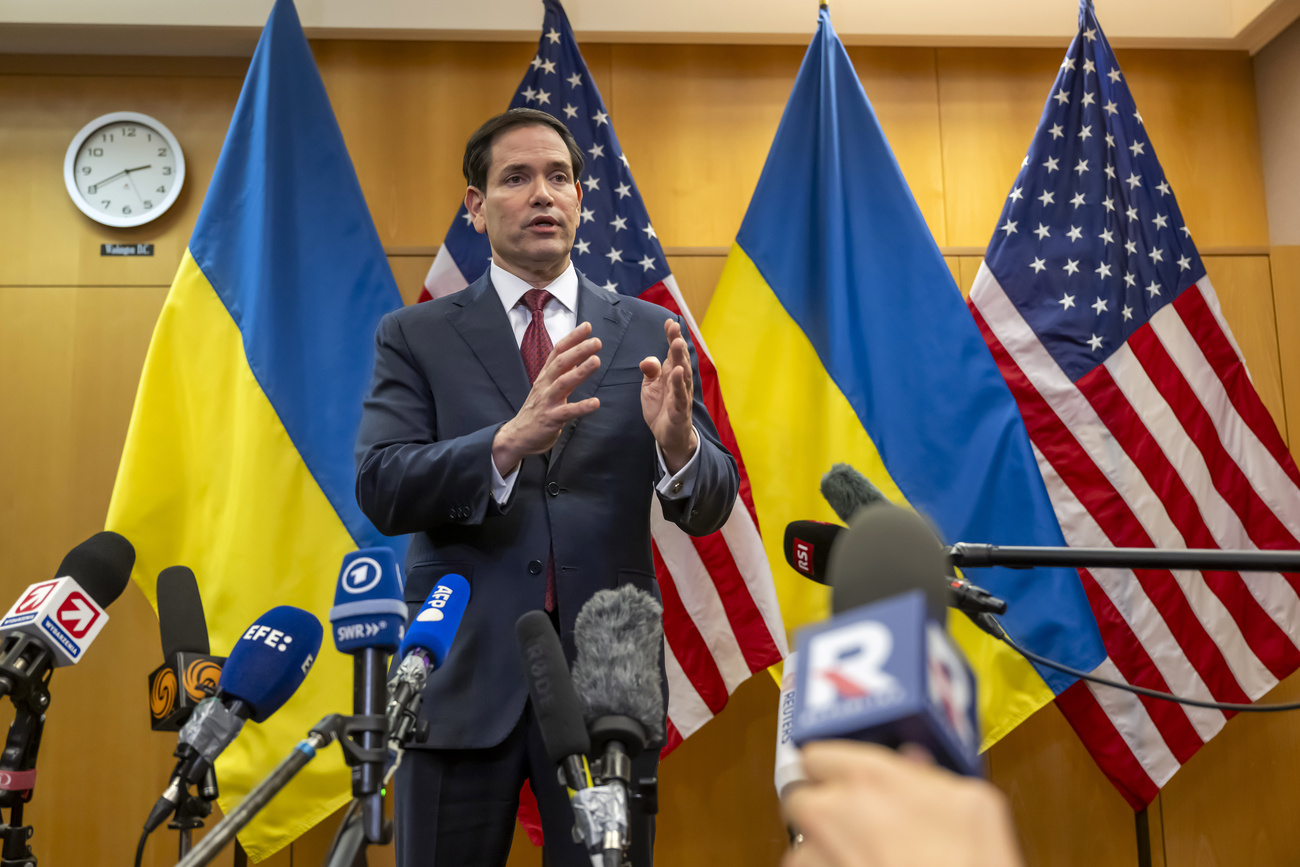
Kremlin derides outcome of Ukraine summit in Switzerland

Moscow continues to belittle the outcome of the Swiss-hosted peace conference on the Ukraine war. Without Russian participation, the summit failed to produce any results, said Kremlin spokesperson Dmitry Peskov on Monday.
Check out our selection of newsletters. Subscribe here.
“If one talks about the results of this meeting then of course they are close to zero,” he said. The fact that a number of Russia-friendly states such as Serbia, Turkey and Hungary had supported the final declaration did not bother Moscow. “We will of course take into account the position these countries have taken. This is important to us. And we will continue to explain our reasoning to them,” said Peskov.
Last weekend, 93 countries and international organisations took part in the talks at the Swiss luxury Bürgenstock resort near Lucerne. The vast majority signed a joint communiqué at the end of the meeting, which emphasises Ukraine’s sovereignty within its internationally recognised borders.
+ ‘Real peace closer for Ukraine’ despite lack of consensus at Swiss summit
It was also recognises that the Russian-occupied Zaporizhzhia nuclear power plant belongs under Ukrainian control. Several important states such as India, Brazil, Indonesia and South Africa were represented in Switzerland, but did not sign the document. China did not take part.
+ Ukraine peace summit failed to meet ‘fairytale’ expectations
President Vladimir Putin’s proposals on the conflict were still on the table, Peskov told the Tass agency. The Kremlin leader had specifically presented an alleged peace plan the day before the Swiss conference. However, this consisted largely of Moscow’s maximum demands and would mean capitulation for Ukraine. Among other things, Putin demanded that Ukraine must withdraw from areas it still controls in the east and south. It would also have to renounce its membership of NATO.
Adapted from German by DeepL/dkk/sb
This news story has been written and carefully fact-checked by an external editorial team. At SWI swissinfo.ch we select the most relevant news for an international audience and use automatic translation tools such as DeepL to translate it into English. Providing you with automatically translated news gives us the time to write more in-depth articles.
If you want to know more about how we work, have a look here, and if you have feedback on this news story please write to english@swissinfo.ch.

In compliance with the JTI standards
More: SWI swissinfo.ch certified by the Journalism Trust Initiative




























You can find an overview of ongoing debates with our journalists here . Please join us!
If you want to start a conversation about a topic raised in this article or want to report factual errors, email us at english@swissinfo.ch.